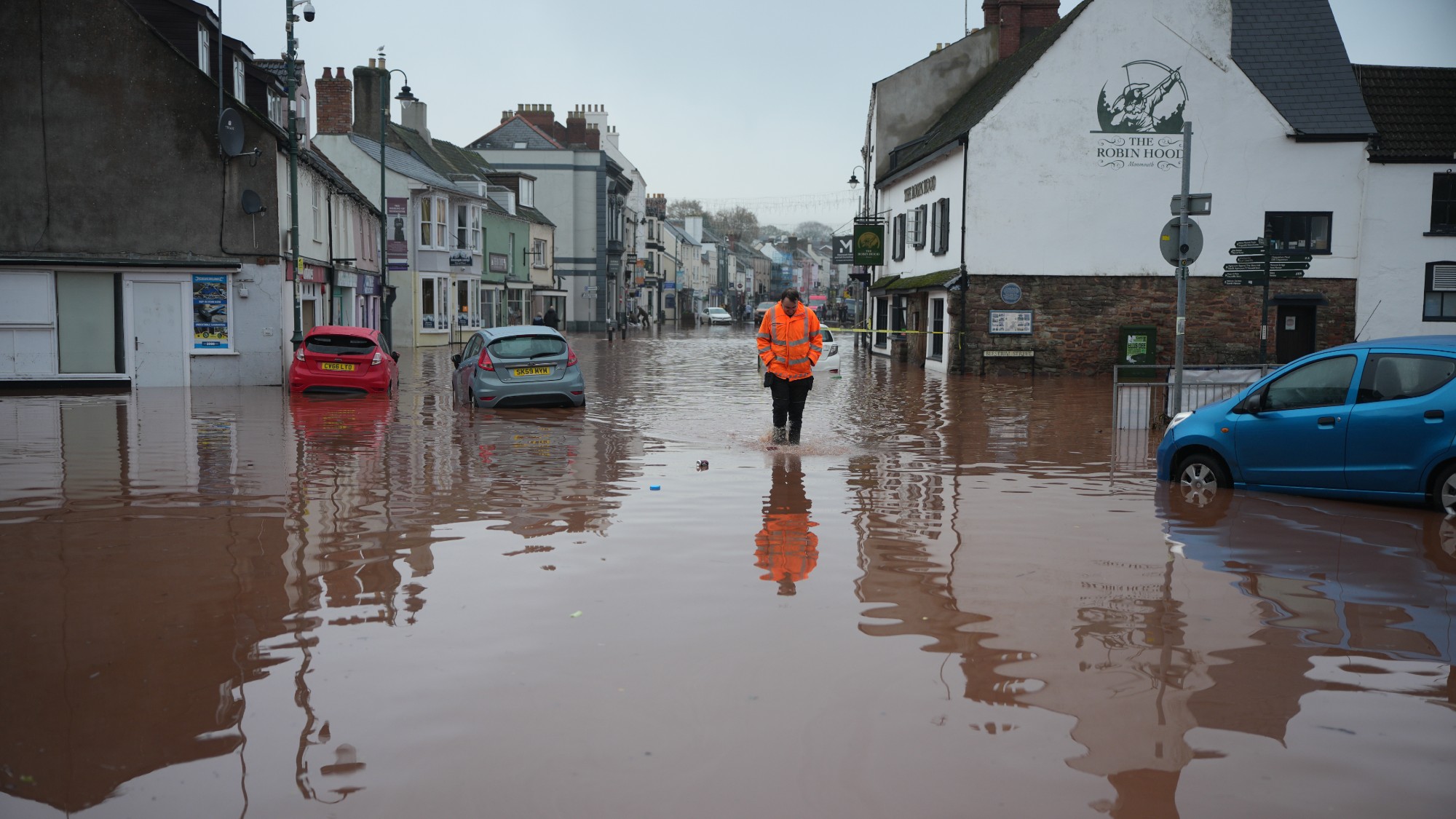Oysters from New York's past could shore up its future
Project aims to seed a billion oysters in the city's waterways to improve water quality, fight coastal erosion and protect against storm surges

A free daily email with the biggest news stories of the day – and the best features from TheWeek.com
You are now subscribed
Your newsletter sign-up was successful
Biologists estimate that New York City's harbour was once home to half the world's oyster population.
For at least 6,000 years, the oyster thrived in the Hudson River estuary, becoming "deeply woven into the life of East Coast cities", said BBC Future. Thanks to over-harvesting and pollution, they are now "long gone".
But over the past decade, one of New York's "most ambitious rewilding initiatives" has planted 150 million larvae, aiming to seed a billion oysters in the city's waterways by 2035. "The goal: restoring the city's coastal habitat, improving water quality and educating the public."
The Week
Escape your echo chamber. Get the facts behind the news, plus analysis from multiple perspectives.

Sign up for The Week's Free Newsletters
From our morning news briefing to a weekly Good News Newsletter, get the best of The Week delivered directly to your inbox.
From our morning news briefing to a weekly Good News Newsletter, get the best of The Week delivered directly to your inbox.
The pearls of New York City
"For thousands of years, oysters played a special role in the story of New York," said The Guardian.
"Once a staple of the Lenape people's diet, oysters led European visitors later to write home in wonder of their quality, and colonisers turned them into a major industry".
But overconsumption, and an outbreak of cholera in 1849 that spurred the construction of a sewage system, which dumped waste into the water, devastated the oyster populations. Soon after the cholera outbreak, a link was established between eating oysters and typhoid. The Health Department closed all the oyster beds, with New York's last shut in 1927.
But in 1972, the Clean Water Act banned the dumping of waste and sewage into the harbour. Another turning point came in 2021, said BBC Future, when a hurricane devastated New York and the US East Coast.
A free daily email with the biggest news stories of the day – and the best features from TheWeek.com
"The conversation really changed when we experienced the impacts from Hurricane Sandy," said Carrie Roble, an aquatic ecologist and vice president of estuarine education at Hudson River Park. "Our city began to ask, what's next, how do we protect our communities?"
An educational experiment in 2003, in which a few students planted about 30,000 oyster larvae – "less than a teaspoon" – into the harbour, "grew into a city-wide initiative". Now, several institutions, 100 schools and 75 restaurants recycle oyster shells through the Billion Oyster Project. The Hudson River Park, one of the partners, claims to have added 35 million oysters to New York's waters since 2021.
The unsung environmentalists
Oysters absorb pollutants when they filter the water; one adult oyster can filter 50 gallons of water a day, said The New York Times.
Oysters also "enhance biodiversity"; animals like shrimp and snails grow on their shells, which provides food for fish, and they provide a natural defence against coastal erosion. They are "key in the fight against rising seas and flooding", too.
During a storm, wave energy accelerates over the bottom of a river, but reefs create a "wiffle ball effect" which absorbs much of the momentum, said Roble.
Restoring the oyster reefs could help to protect the city from extreme storms, according to a study recently published in the journal Nature.
London mayor Sadiq Khan also visited the project in September, and committed to "explore the role" that oysters might one day play in cleaning up the River Thames. After all, oyster reefs once stretched across kilometres of the Thames estuary too.
The Solent Seascape Project, one of the biggest restoration projects in Europe, recently used $5 million of funding to introduce more than 14,000 oysters into the River Hamble, said SW Londoner.
"If we are successful in the Solent then absolutely, we can do it in places like the Thames," said professor of marine zoology at the University of Portsmouth, Gordon Watson, of the project.
Other oyster restoration projects are already underway in Bangladesh, Australia and Hong Kong.
Harriet Marsden is a senior staff writer and podcast panellist for The Week, covering world news and writing the weekly Global Digest newsletter. Before joining the site in 2023, she was a freelance journalist for seven years, working for The Guardian, The Times and The Independent among others, and regularly appearing on radio shows. In 2021, she was awarded the “journalist-at-large” fellowship by the Local Trust charity, and spent a year travelling independently to some of England’s most deprived areas to write about community activism. She has a master’s in international journalism from City University, and has also worked in Bolivia, Colombia and Spain.
-
 How the FCC’s ‘equal time’ rule works
How the FCC’s ‘equal time’ rule worksIn the Spotlight The law is at the heart of the Colbert-CBS conflict
-
 What is the endgame in the DHS shutdown?
What is the endgame in the DHS shutdown?Today’s Big Question Democrats want to rein in ICE’s immigration crackdown
-
 ‘Poor time management isn’t just an inconvenience’
‘Poor time management isn’t just an inconvenience’Instant Opinion Opinion, comment and editorials of the day
-
 The environmental cost of GLP-1s
The environmental cost of GLP-1sThe explainer Producing the drugs is a dirty process
-
 Climate change could lead to a reptile ‘sexpocalypse’
Climate change could lead to a reptile ‘sexpocalypse’Under the radar The gender gap has hit the animal kingdom
-
 Why scientists want to create self-fertilizing crops
Why scientists want to create self-fertilizing cropsUnder the radar Nutrients without the negatives
-
 How drones detected a deadly threat to Arctic whales
How drones detected a deadly threat to Arctic whalesUnder the radar Monitoring the sea in the air
-
 ‘Jumping genes’: how polar bears are rewiring their DNA to survive the warming Arctic
‘Jumping genes’: how polar bears are rewiring their DNA to survive the warming ArcticUnder the radar The species is adapting to warmer temperatures
-
 ‘Like a gas chamber’: the air pollution throttling Delhi
‘Like a gas chamber’: the air pollution throttling DelhiUnder The Radar Indian capital has tried cloud seeding to address the crisis, which has seen schools closed and outdoor events suspended
-
 How will climate change affect the UK?
How will climate change affect the UK?The Explainer Met Office projections show the UK getting substantially warmer and wetter – with more extreme weather events
-
 The UK’s surprising ‘wallaby boom’
The UK’s surprising ‘wallaby boom’Under the Radar The Australian marsupial has ‘colonised’ the Isle of Man and is now making regular appearances on the UK mainland